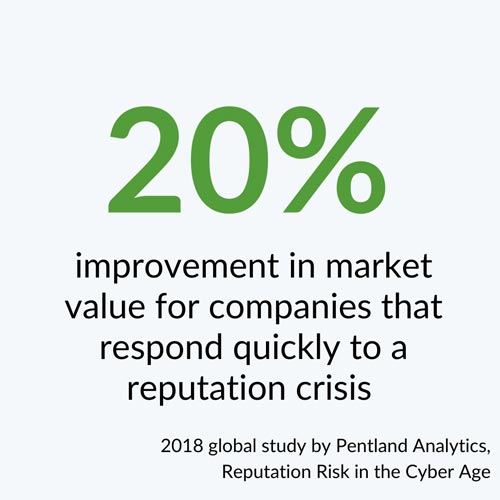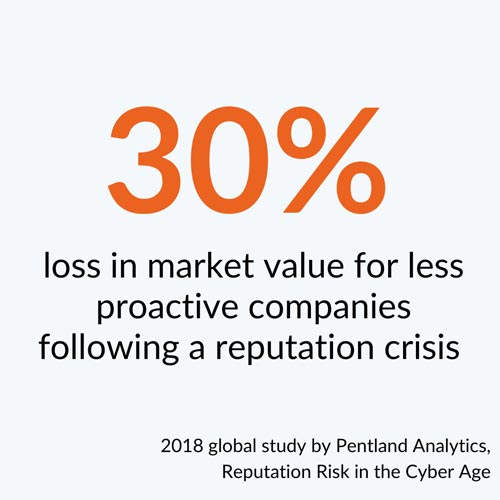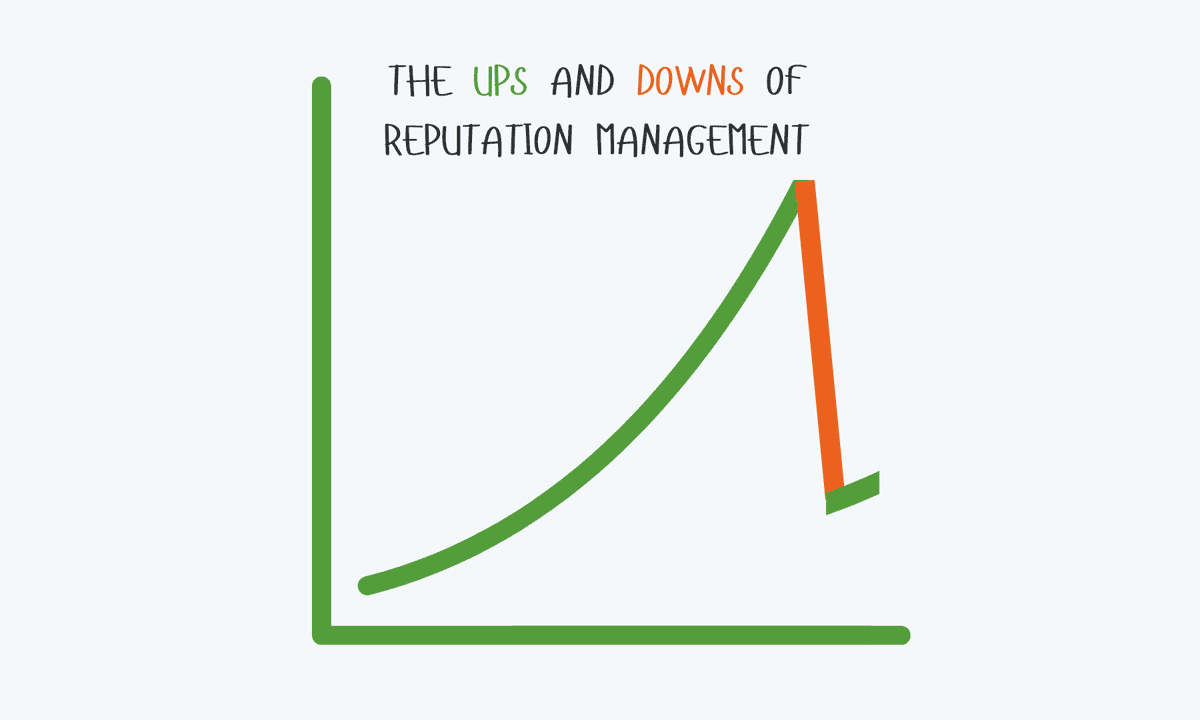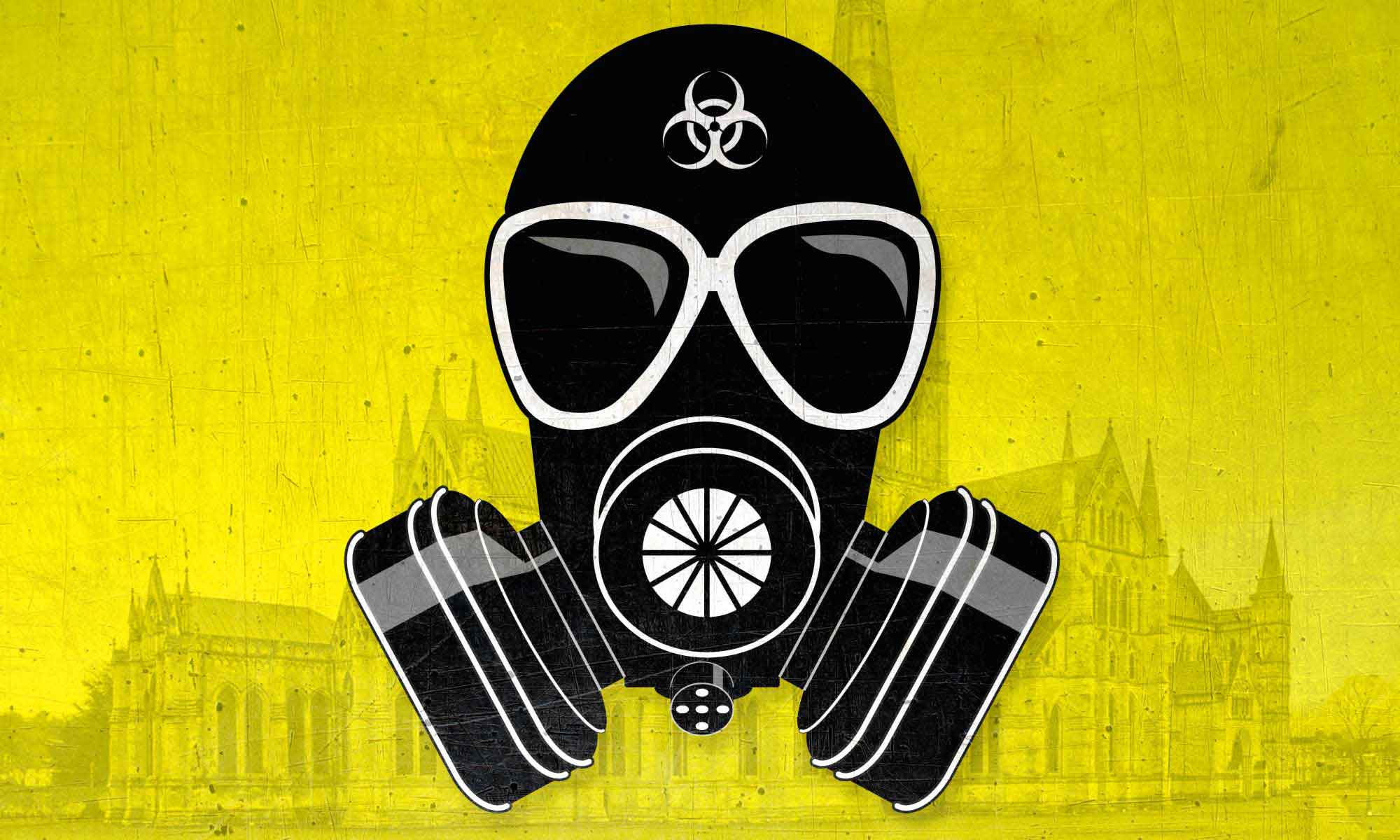Building a company’s reputation is a long-term investment which takes years of consistent effort, trust-building, and strategic communication. But the destruction of reputation happens in a matter of moments. We thought we’d take a closer look at how investment in crisis communications and risk preparation reduces the impact of a reputational hit.
Building a reputation: The value of long-term effort
1. Consistency and Trust:
– Years of reliable performance, transparency, and delivering on promises
2. Quality and Excellence:
– Continuous provision of high-quality products or services and maintaining high standards
3. Positive Relationships:
– Nurturing relationships with customers, employees, and the wider community
4. Strategic Communication:
– Regular, strategic engagement and storytelling to highlight successes and values
5. Resilience and Adaptability:
– Demonstrating strength in handling challenges and adapting to changes
According to research from Pentland Analytics (pdf), companies recover from share-price losses faster when senior management communicates with stakeholders swiftly and launches an active program of social responsibility that directly addresses the damage associated with the crisis.


Don’t waste years of hard work. Prioritise proactive reputation management and effective crisis communication to protect your brand integrity.
To help you we’ve created a tool to discover how safe your company’s reputation really is. Think of it as the first step of a Reputation Audit.
To take a look, please visit our Reputational Audit page.



















